WHAT WE'RE WATCHING
Babylon: Not even Brad Pitt, Margot Robbie or Tobey Maguire could save this box office flop
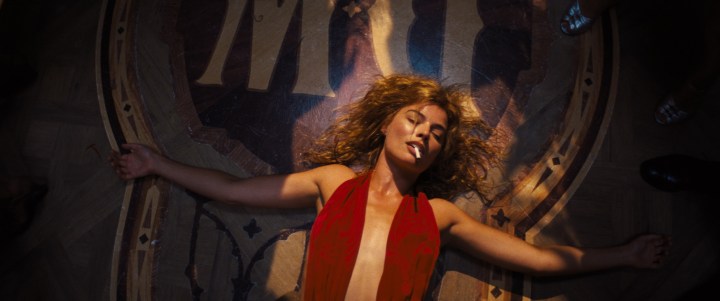
The epic comedy-drama about wild Hollywood’s transition from the silent era to the talkies is hilarious and spectacular. But even with a big budget and an ensemble cast, La La Land director Damien Chazelle seems to have lost the plot.
Though he’s utterly outshone by the blazing presence of his co-stars, Diego Calva’s character, Manny Torres, is the central protagonist of Damien Chazelle’s three-hour marathon movie. It makes sense – Manny is a young Mexican-American desperate to break into the movie industry to “be a part of something bigger” – he’s sweet, naive, and on the outside; so we can discover the hysteria of Hollywood’s silent era through his eyes.
Tasked with transporting an elephant to one of the mythical drug-fuelled bacchanals of the tail end of The Roaring Twenties, Manny befriends aspiring actress Nellie LaRoy (Margot Robbie), who’s scouted out of the crowd for her wild magnetism and cast into a silent film. Performing amid the ecstatic delirium are Sidney Palmer (Jovan Adepo), a trumpet player in the ceaseless jazz band, and Lady Fay Zhu (Li Jun Li), a Chinese-American cabaret singer. Manny’s career begins with the end of his night, when Jack Conrad (Brad Pitt), a drunken film star akin to Errol Flynn or Tyrone Power, decides that “Manny’s great!”
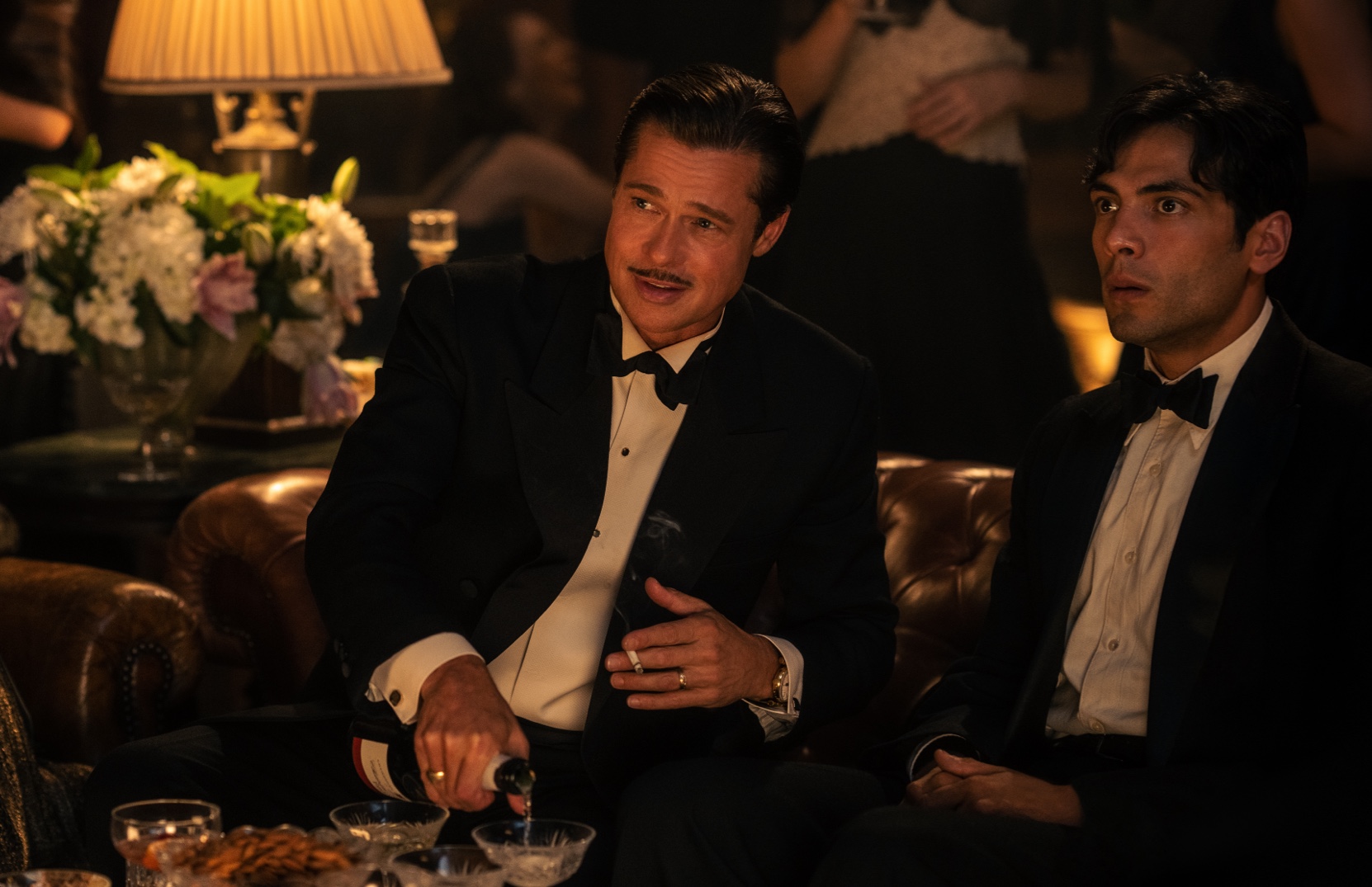
Brad Pitt and Diego Calva. Production still from Babylon. (Image courtesy of Paramount Pictures)
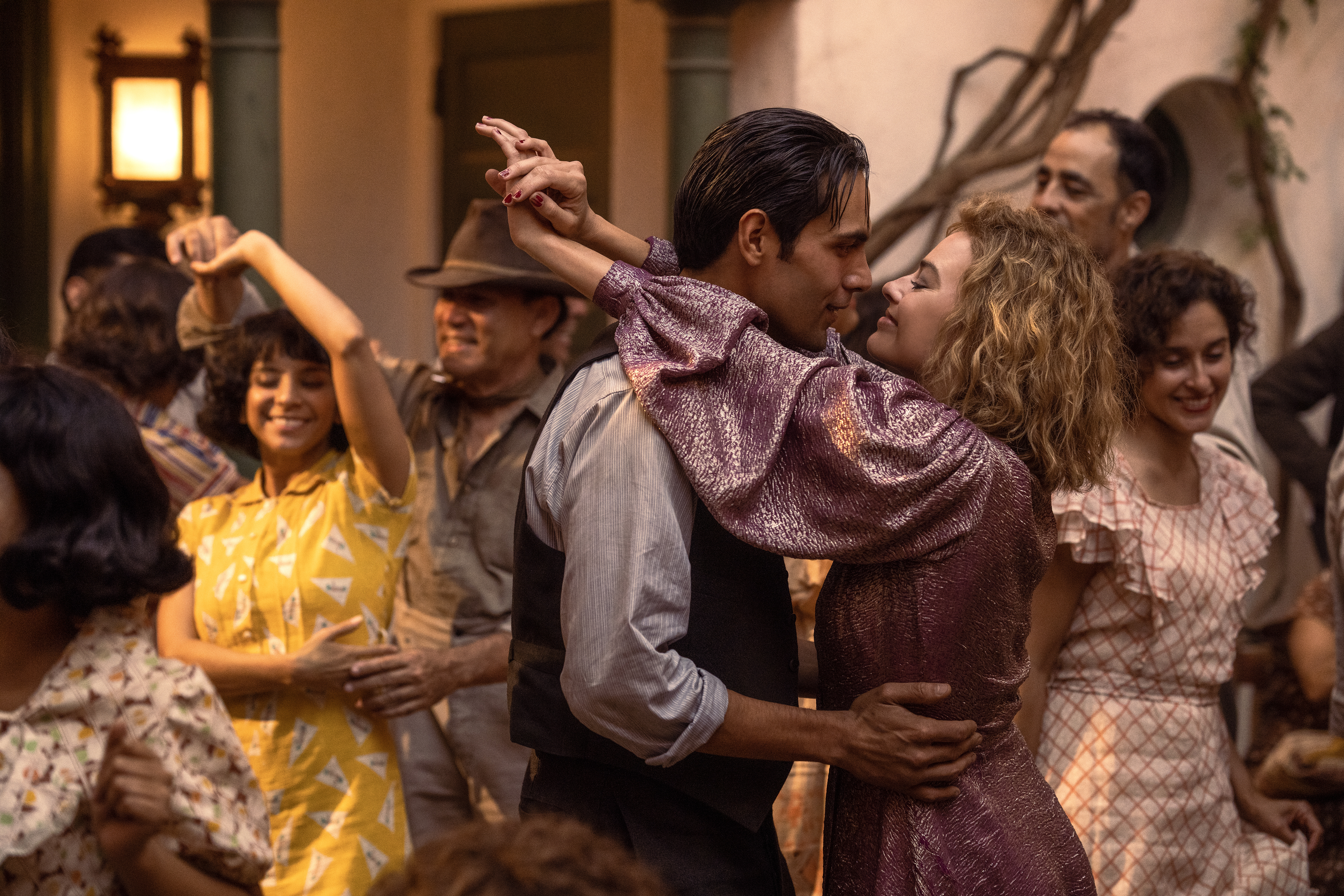
Diego Calva plays Manny Torres and Margot Robbie plays Nellie LaRoy in Babylon from Paramount Pictures. (Image courtesy of Paramount Pictures)
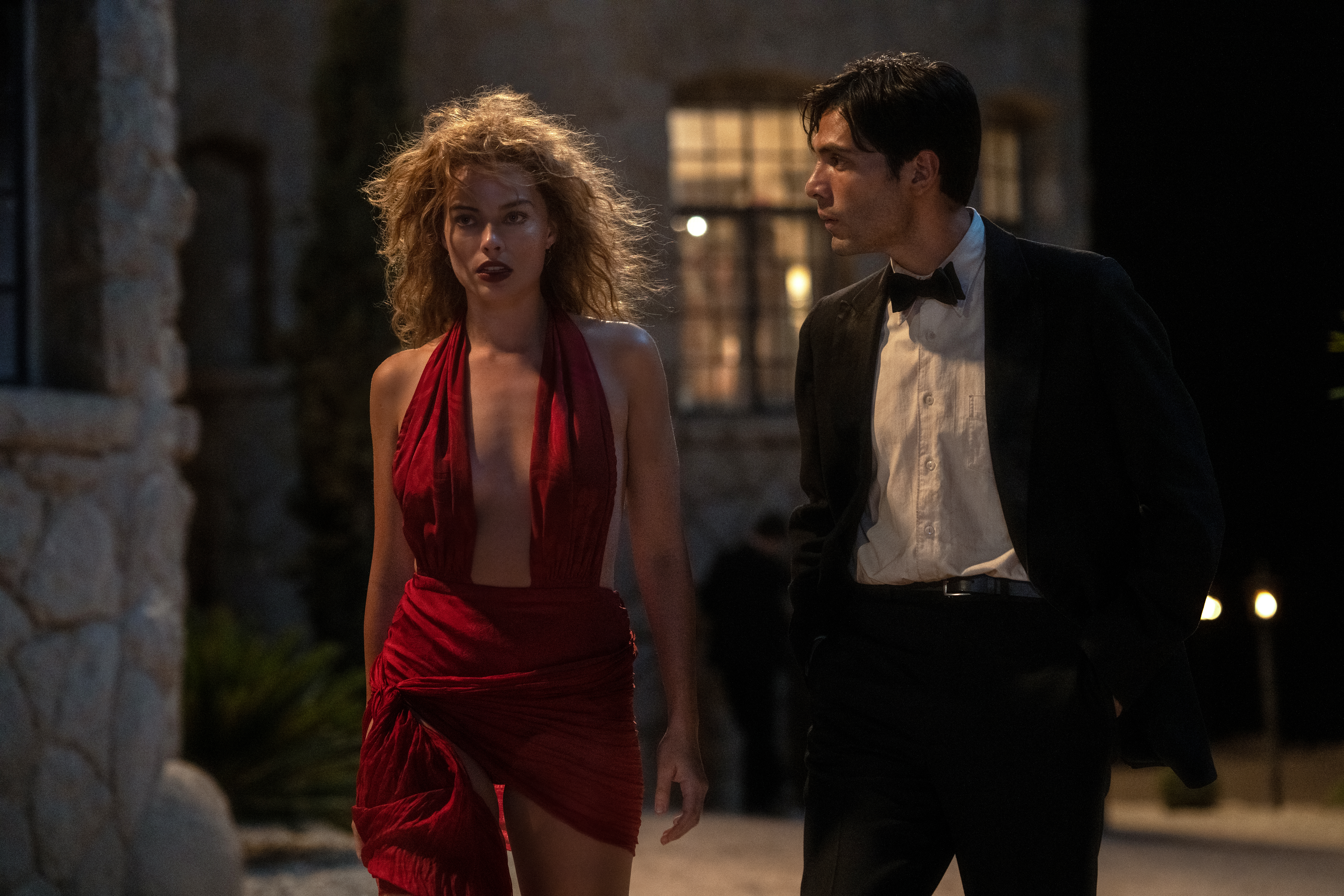
Margot Robbie plays Nellie LaRoy and Diego Calva plays Manny Torres in Babylon from Paramount Pictures. (Image courtesy of Paramount Pictures)
Babylon takes the themes and lead-actors of Once Upon A Time In Hollywood and the behind-the-scenes debauchery of The Wolf Of Wall Street and rehashes it in the grandiose wild west setting of the Great Gatsby (which makes one wonder how Leonardo Dicaprio didn’t find his way into the spotlight).
The film stands a good chance of nabbing an Oscar in one of the technical categories – the production design is immaculate, simultaneously grandiose and authentic. The costume design is much the same. Justin Hurwitz’s non-stop manic circus-jazz score is perfect for the mania and exuberance of the era: exciting, relentless, fun, and just a little unsettling. And then there’s the cinematography, which ranges from the stylised close-ups and golden lighting of those fleeting dreamlike moments – which Chazelle does so enjoy using to share a character’s wonder – to the propulsive quick cuts and sweeping camera shots of hundreds of extras during the numerous party scenes that overwhelm the senses.
How is it that with all this talent and excellence, Babylon has been a box office bomb, grossing a fraction of its $78-million budget? Some of it comes down to luck, and some of it is due to Chazelle’s absolutely chaotic and excessive plot. Babylon is the first feature film he has both written and directed since La La Land, which very briefly won Best Picture at the 89th Academy Awards. Possibly due to the success of his La La Land and his masterful orchestral drama, Whiplash, Chazelle was given an enormous amount of resources for Babylon, and lost the plot trying to make the most of them.

Margot Robbie plays Nellie LaRoy and Diego Calva plays Manny Torres in Babylon from Paramount Pictures. (Image courtesy of Paramount Pictures)
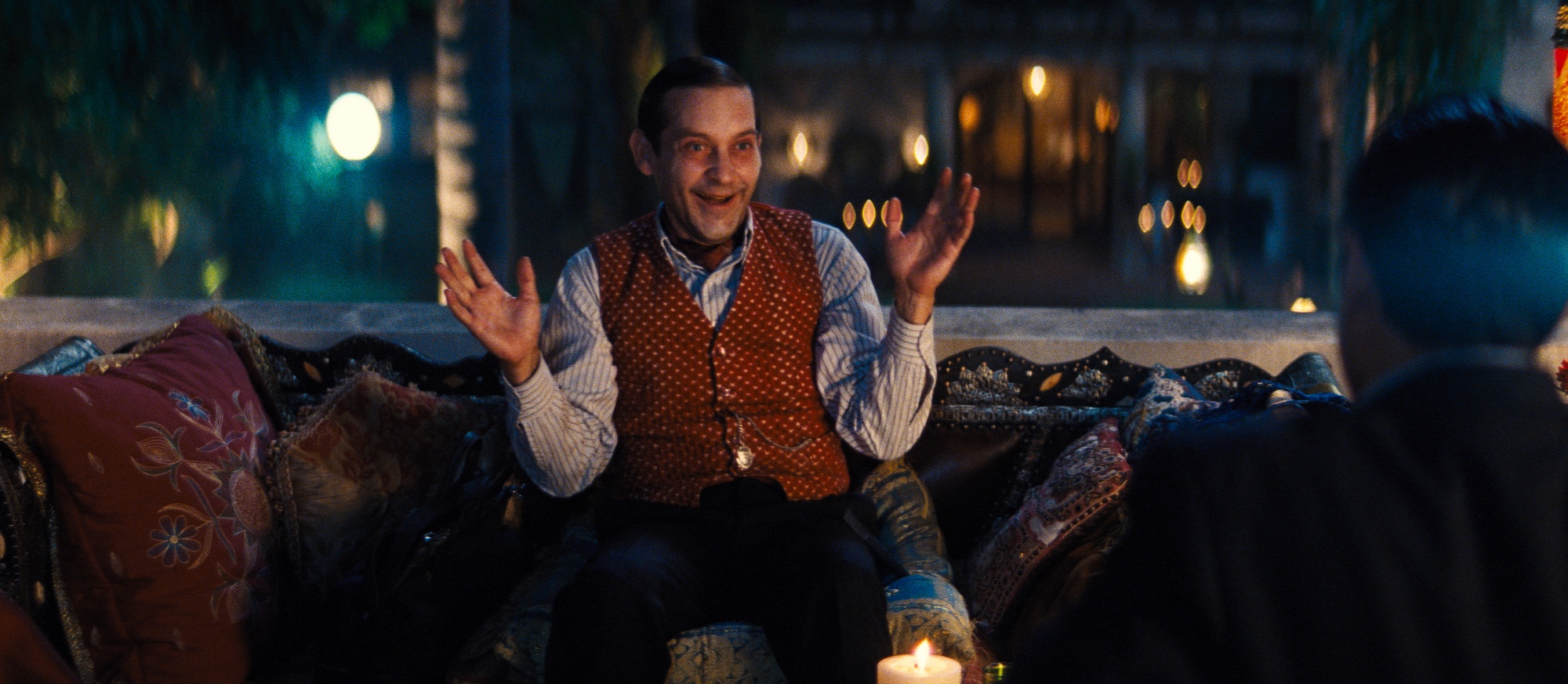
Tobey Maguire in Babylon from Paramount Pictures. Production still from Babylon. (Image courtesy of Paramount Pictures)
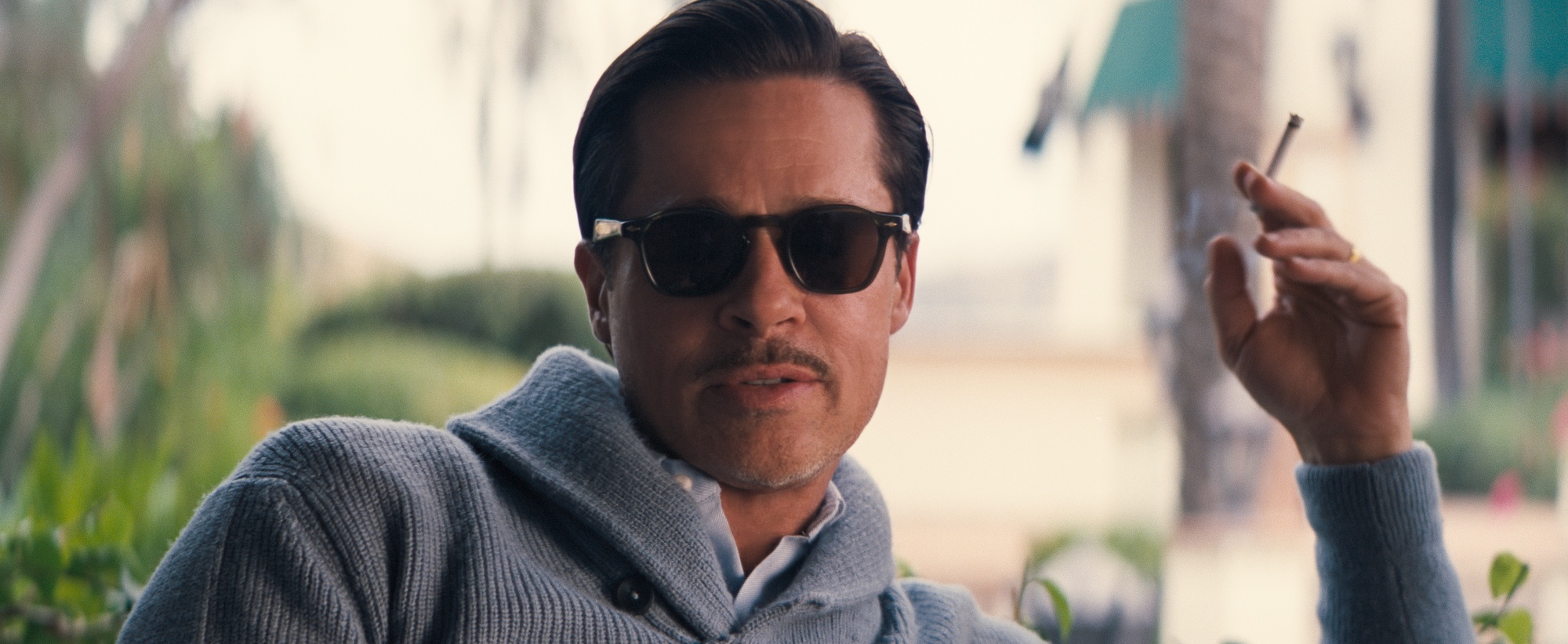
Brad Pitt in Babylon from Paramount Pictures. Production still from Babylon. (Image courtesy of Paramount Pictures)
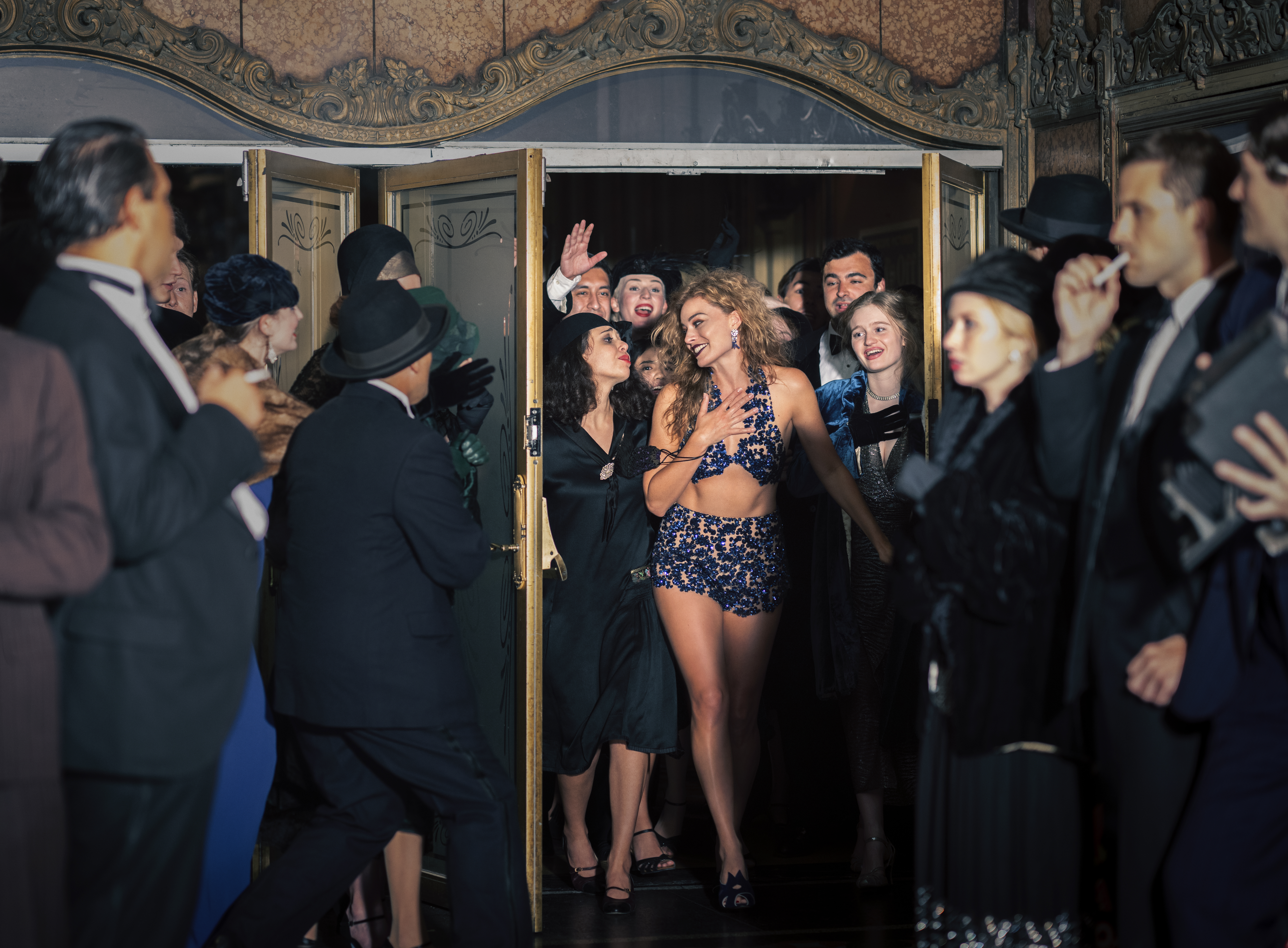
Margot Robbie plays Nellie LaRoy in Babylon from Paramount Pictures. Sidney Palmer in Babylon from Paramount Pictures. Production still from Babylon. (Image courtesy of Paramount Pictures)
Chazelle splits his attention between exposing and satirising the vices of classical Hollywood and depicting the transition from the silent era to the talkies. The best two scenes of the film are devoted to these themes respectively, and are unbelievably funny:
The first is our introduction to a sprawling silent film set. Without the concern of sound, several scenes could be shot simultaneously in a small space, adding to the chaos of set and the magic of the illusion. There’s a hyperbolic Monty Pythonesque portrayal of an anarchic battle scene full of untrained extras, which is only briefly interrupted when a man is impaled by a spear.
The second is “Scene 17”, showing the challenges involved in moving from silent films to the talkies. There’s no air conditioning because it makes too much sound, blocking has to be more precise so that actors are positioned under microphones; suddenly an actor’s accent or language and ability to remember lines is a deciding factor in who is cast. The tedium of trying to capture a single scene, given these challenges, is captured with mounting frustration. With each take, the mania rises and becomes funnier and funnier as it goes on. PJ Byrne is particularly comical as the assistant director who loses his marbles completely, and treats the audience to a silly and liberal helping of schadenfreude (Byrne’s staple performance).
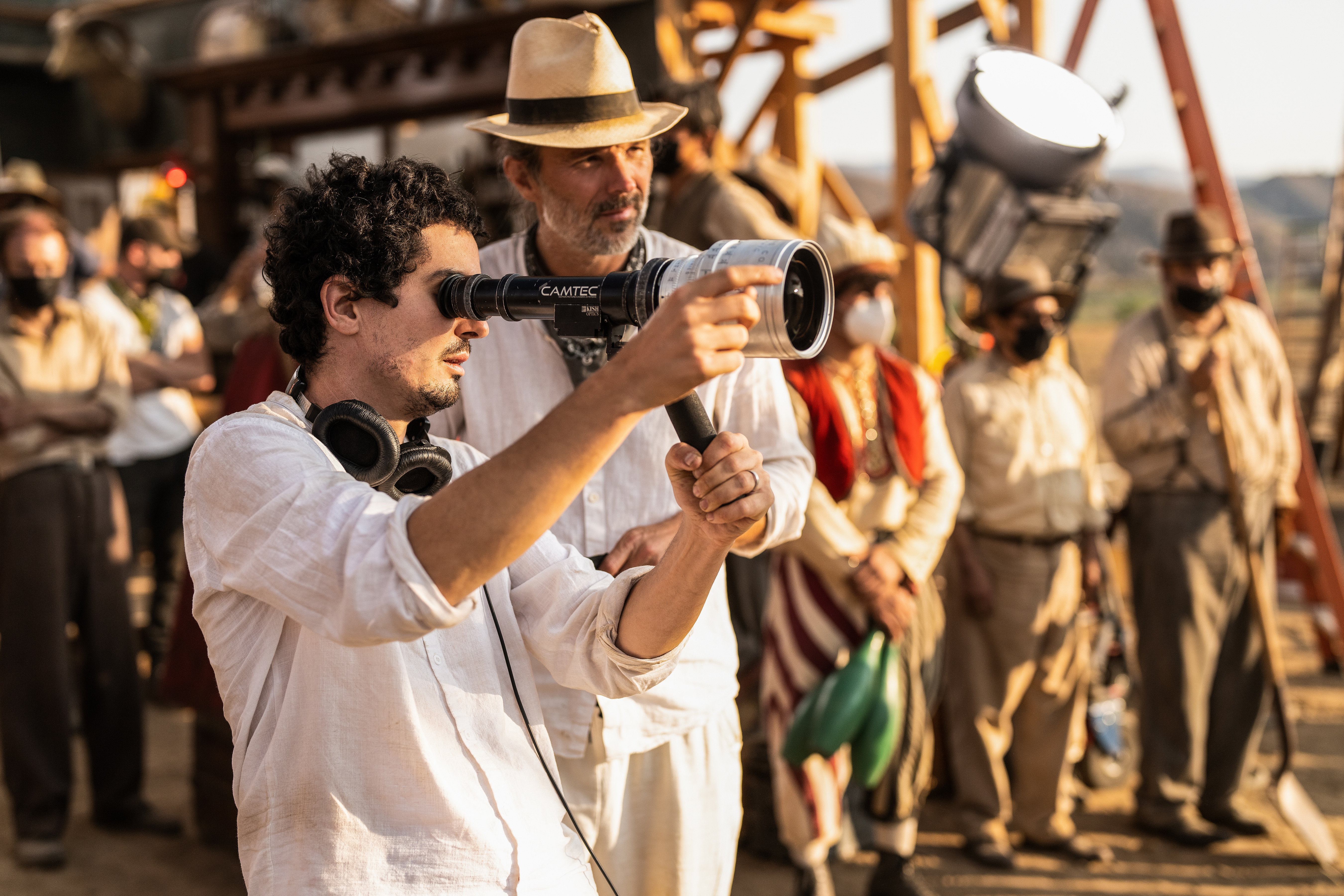
Director Damien Chazelle and Director of Photography Linus Sandgren on the set of Babylon from Paramount Pictures.
These two scenes, brilliant as they are, might have been the cores of two separate, shorter, more focused films, but instead they are memorable standout moments in a disjointed 189-minute anthology crammed with so much that it bursts at the seams. A secondary theme explored in Babylon is how success during The Golden Age of Hollywood looked very different, depending on where you fell on the systematically racialised and gendered hierarchy.
As a white man, Jack is celebrated and given carte blanche despite his obvious flaws. Nellie’s white privilege allows her the opportunity to break into the industry, but as a woman, her fame relies on her beauty and is at the expense of her privacy. Fay is sexualised even further and has to lean into the exoticising of Asian cultures to carve out a niche for herself. Being Hispanic, Manny has to work twice as diligently to appease the ridiculous demands of the white men who run the industry just to stand the same chance; and despite his talent, Sidney is limited and degraded because of his black skin.
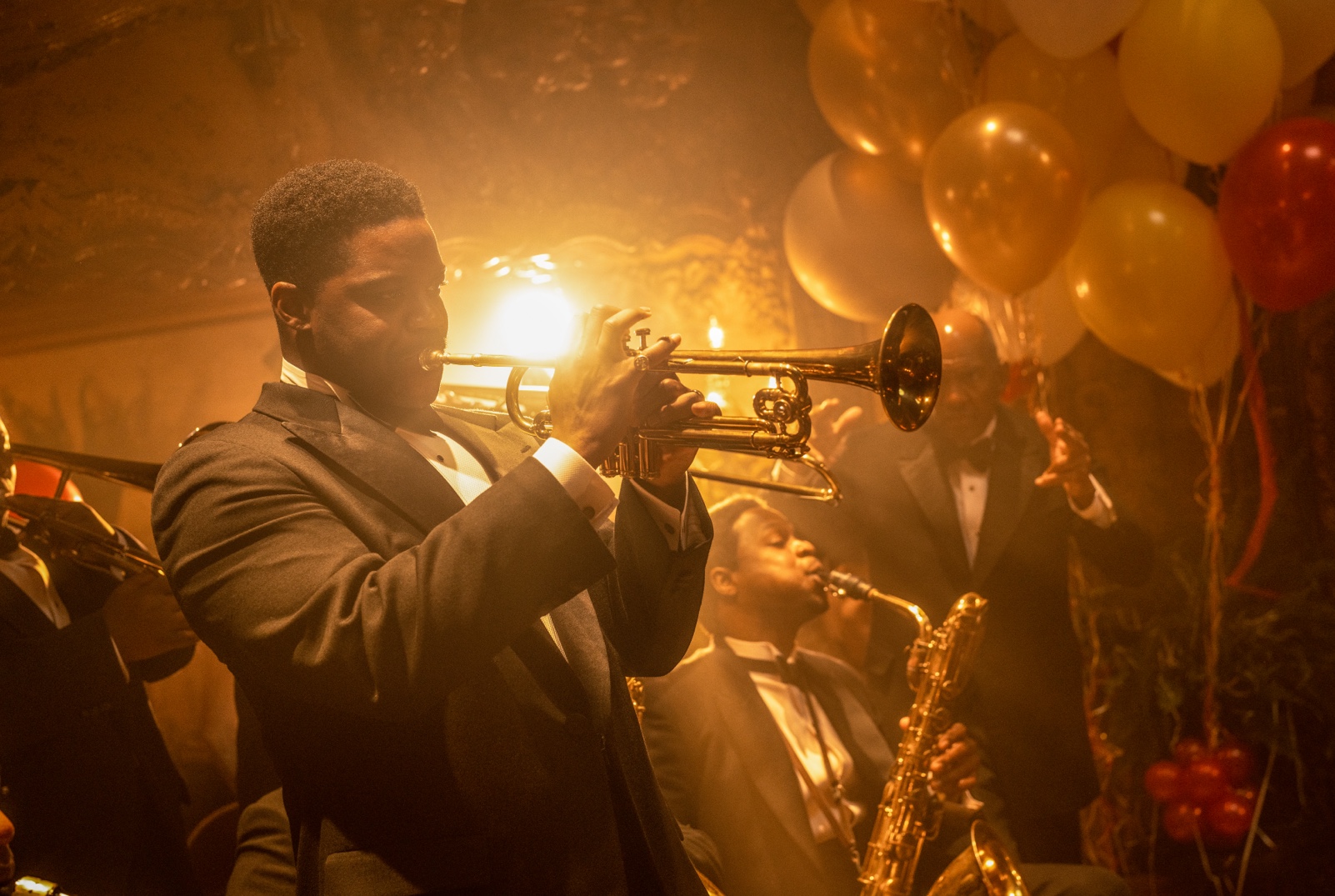
Sidney Palmer in Babylon from Paramount Pictures. Production still from Babylon. (Image courtesy of Paramount Pictures)
The clear differences in how Chazelle portrays his characters’ experiences of the classical era of Hollywood, coupled with the extravagance and self-importance of the entitled aristocrats he populates it with, suggests he intended Babylon to be iconoclastic, shattering the glossy romantic picture which some people have of the silver screen. But it seems as though he struggles to commit to this critique.
Take Pitt’s character, Jack Conrad for example. He’s supposedly a satirical stab at the privileged, babied leading men of that era. He’s the most undeservingly privileged of all of the main characters, yet Chazelle can’t help but love him, and uses him as a vessel to gush philosophically about the magic of cinema. Often he will passionately proclaim things like, “The man who puts gas in your tank goes to the movies, why? Because he feels less alone there!” “…they look up at that screen and say for the very first time, eureka! I am not alone!”
Even when Jack is shown drunk as a skunk, nearly throwing up before a take on set, he spontaneously switches perfectly into character as if suddenly sober, and we are made to marvel at his natural, effortless acting ability. However misanthropic Chazelle’s portrayal of The Golden Age was, there’s an unspoken sentiment that it was all worth it because of the supernatural cultural importance of film. He finally admits this at the very end, and marches proudly and tearfully off the edge of a cliff.

Margot Robbie plays Nellie LaRoy in Babylon from Paramount Pictures. (Image courtesy of Paramount Pictures)
The glory of cinema is spoon-fed to us through the happy tears of an unrelatable character that are so blunt that they amount to exposition, and a messy montage of clips, showing the progression of the movie industry that is so alarmingly amateur that it undermines the entire three hours preceding it.
Babylon is definitely worth watching – it’s expertly produced, unstoppably entertaining and has some inspired, memorable scenes. But it’s less than the sum of its parts, spending time on unnecessary detours, like the penultimate act featuring Tobey Maguire as a creepy mob boss. Chazelle crams too much into a single film, creating a misshapen anthology of excellent attributes that lose their sheen when smashed together so forcedly. There’s nothing wrong with a long movie but that intensity of stimulation for that amount of time needs to serve a purpose, and if a scene doesn’t add, it takes away. Chazelle’s out-of-place finale wasn’t enough to sell the notion that the evils of Hollywood are counterbalanced by its magic, so we’re left unsure about what to make of this contradictory salsa of mismatched ingredients. DM/ ML
Babylon is available in South Africa in cinemas from 20 January.
You can contact We’re Watching via [email protected]




















 Become an Insider
Become an Insider
Yeah speaking for myself, I’m almost as bored with Hollywood’s self-obsession as I am with its zombie obsession, and that’s what’s kept me away from this over-indulgent looking mess.
Well I disagree. I loved Babylon. I loved the obscurity and the way the movie ebbed and flowed in an abstract way. I think it will end up being another cult film as Pulp Fiction was in its day.
It was definitely a film focussed on Margot Robbie who left everyone in our party spellbound.
Definitely worth seeing. But not for the faint hearted or prudish that’s for sure.